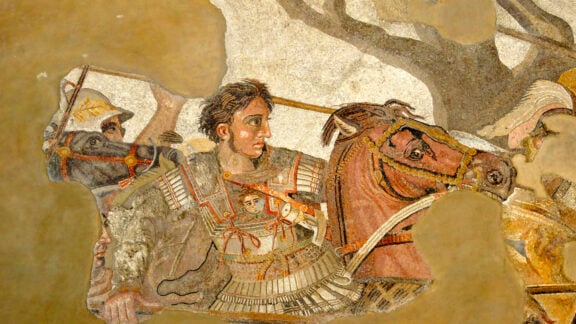The birth of a state is rarely the work of armed struggle alone. Insurgents may raise banners, proclaim constitutions, and shed blood, but without recognition sovereignty remains suspended between aspiration and reality. Recognition is both juridical and performative: it does not simply acknowledge existence but contributes to its creation. To recognise is to render visible, to inscribe a community into the language of international law, and to situate it within the order of nations.
The Greek Revolution of 1821 illustrates this aptly. For the rebels, independence was proclaimed with conviction, conceived as destiny after centuries of subjugation. However, proclamations remained fragile without acknowledgment from others. Recognition by foreign powers, whether symbolic solidarity or diplomatic and military intervention, proved decisive in transforming insurgency into sovereignty. Two centuries later, Australia’s recognition of a Palestinian state echoes that earlier story, reminding us that sovereignty is never merely declared; it is conferred and sustained by those who acknowledge it, typically powers stronger than the community whose aspirations they affirm.
The position of the Greek insurgents in the 1820s was tenuous when measured against the criteria of early modern jurists such as Hugo Grotius and Emer de Vattel, who laid foundational principles for international law. Grotius introduced the idea that sovereign states have rights and duties grounded in natural law, including just war and respect for sovereignty. Vattel emphasized that a state must have defined territory, effective government, and the capacity for diplomatic relations to qualify as sovereign, and that states are juridical equals deserving noninterference. Against these standards, the Greeks lacked stable territory and cohesive governance. Nevertheless, recognition arrived, demonstrating the performative power of sovereignty.
In 1822, Haiti, newly sovereign but fragile, extended solidarity, its president Jean Pierre Boyer addressing revolutionaries groping toward coherence rather than a central government. Recognition was thus afforded to a movement, not a state, acknowledging a political subject that did not yet meet the standard conditions of sovereignty. It was an anticipatory act, projecting into existence a future state.
The implications for Palestine are immediate. Its sovereignty remains fractured by occupation, borders contested, and institutions split between Gaza and the West Bank. By the Montevideo Convention’s 1933 formula—people, territory, government, and capacity for relations—it would appear deficient. Yet recognitions such as Australia’s evoke precisely that Haitian gesture to the Greeks. Palestinians are treated as participants in the international order, acknowledged as subjects of international law even before material consolidation. Recognition in this anticipatory mode creates rather than merely confirms sovereignty.
Haiti’s act, however moving, was too distant to shape realities in Greece. More tangible was the intervention of British finance. In 1824 and 1825, agreements in London furnished loans to the revolutionaries, tacitly underwritten by government approval. Douglas Dakin called these loans “premature recognition,” presuming an authority able to borrow on behalf of a sovereign community. Much of the capital was dissipated by incapacity, corruption, and factionalism. Still, the act of borrowing itself was transformative: contracting debt signalled Greece existed as a subject of law.
Karl Marx’s observation that the world market mediates political existence appears vividly here. Greece was admitted into finance before diplomacy. However, admission came at a price. Heavy borrowing guaranteed that sovereignty would be tied to external creditors and their interests. For Palestine, the warning is stark. States recognised through finance and aid often find themselves bound to donor preferences. Palestine’s reliance on subsidies and external goodwill foreshadows the same paradox the Greeks experienced, setting them up for bankruptcy.
Diplomatic recognition by the great powers followed later and under duress. London, Paris, and St Petersburg hesitated. The Vienna settlement of 1815 had sought to preserve Ottoman integrity as part of the balance of power. To grant Greek independence risked provoking Poles, Italians, and Hungarians in their nationalist aspirations. Nonetheless, sentiment in Europe, compounded by strategic interest, eroded resistance. Russia advanced itself as defender of Orthodoxy; Britain recalculated to protect Mediterranean routes; France refused to be excluded. Recognition thus became strategic, not simply philhellenic.
The Treaty of London in 1827 marked the turning point. By placing the Greeks on equal footing with the Sultan as parties to mediation, the powers elevated them into international diplomacy. The Sultan’s refusal escalated matters to Navarino, where the Ottoman Egyptian fleet was destroyed. By 1830, through the second Treaty of London, Greece was declared sovereign. Recognition here created sovereignty: the state existed because the great powers willed it, not because material or legal criteria had been fulfilled.
This recognition carried costs. The Bavarian prince Otto was imposed as monarch, a ruler chosen abroad rather than within Greece. Loans that had protected the insurgents became enduring burdens, tying the new polity to European financiers. Independence was real but conditioned, sovereignty shadowed by supervision. Hegel’s dialectic of recognition, that autonomy requires acknowledgment by another, was realised here, but so too was Koskenniemi’s claim that international law is a vocabulary of power. Sovereignty was defined by others, framed within interests not the Greeks’ own.
Recognition was not the only Western import. Nationalism itself was a European construct, born of Enlightenment rationality and Romantic imagination, projected onto peoples who had long lived under imperial and communal frameworks. For Greece, adopting nationalism promised liberation but also tethered the new state to the irredentist dream of the Great Idea. Nationalism demanded borders be expanded to encompass all Greeks, leading to recurrent wars against the Ottomans and Bulgarians and culminating in the Asia Minor Catastrophe of 1922. Freedom thus came entwined with destruction and sacrifice. Equally, the borders of what is to be a Palestinian state remain unclear. Just as the world powers once failed to endow Greece with frontiers corresponding to where its people actually lived, condemning it to cycles of conflict until as late as 1975, so too Palestine faces the peril that imposed or ambiguous boundaries may sow discord long after recognition. Their nakba came at the very beginning, dispossession the founding fact of their history. The question remains how far the Western model of recognition, with its rigid nation state template, can be reconciled with Arab traditions of governance that emphasised looser confederations, tribal and religious leadership, and negotiated communal autonomy. To impose a Western grammar of nationalism risks repeating Greece’s pattern: sovereignty modelled on Europe’s terms, demanding borders alien to Arab realities, and possibly precipitating new cycles of conflict.
Palestinian aspirations today confront this paradox. Recognition abounds: in 2012 the UN General Assembly accorded them non member observer state status, and over 140 states recognise Palestinian sovereignty. Still, effective independence remains elusive. Territory is fragmented, governance divided, and decisive powers withhold endorsement or condition its legitimacy. Palestine occupies what Giorgio Agamben calls a state of exception: acknowledged in law but denied fulfilment in fact.
Australia’s act of 2025 added to their legitimacy. It cannot redraw borders or impose peace, but its affirmation matters. Like Haiti’s gesture to Greece, it sustains inclusion in a moral and legal discourse where exclusion would be devastating. Recognition affirms identity, strengthens claims, and binds aspirations into legitimacy. Yet Greece’s example shows recognition is rarely unconditional. Symbolism may open the door, but recognition through finance, military patronage, or diplomatic partnership imposes obligations that endure. Palestine must reckon with the likelihood independence may arrive hedged with conditions and tethered to external interests.
The Greek example warns that recognition can deliver a state not fully its own. Debt, monarchy chosen abroad, and strategic alignment dictated by patrons defined its early reality. Independence became entangled with manipulation by powers more concerned with balance than self determination. Palestine risks a comparable fate. If sovereignty is finalised by international fiat, borders drawn externally and institutions dependent on donors, the paradox of conditional independence will recur. The peril is that sovereignty may secure only the symbols of statehood while compromising its substance, leaving Palestine subject to oversight, aid, and conditions that dilute genuine autonomy.
For jurists, Carl Schmitt’s dictum that sovereignty lies in deciding on the exception is unsettled here. Palestine demonstrates such a decision, unless validated externally, remains void. Agamben’s description of suspension captures their condition: recognised in law, unrealised in practice. Greece too inhabited this liminality, neither Ottoman province nor sovereign until Europe declared it. Incremental recognitions accumulated, but sovereignty crystallised only when others pronounced it.
The lesson is that recognition can constitute rather than follow fact. However, what is granted is never free. Greece entered existence as a creature of European tutelage. Palestine may likewise attain sovereignty only as a state conditioned by others. Recognition is not benign; it binds as much as it liberates.
To recognise is to legislate the future. International law does not mirror reality; it shapes it. Affirming sovereignty not yet achieved legislates a world to come. The crucial question is whose terms determine that order. Greece shows recognition bestowed by patrons creates a state interlaced with dependency. For Palestine, jubilation must be tempered with caution. Independence may mask subordination if imposed from abroad. A flag may rise and an anthem be sung, but if borders are determined elsewhere and autonomy constrained, the result may only approximate sovereignty.
Recognition embodies both promise and peril. It grants visibility and legitimacy, yet also enables external power to intrude, shaping a state not wholly by its own will but by others’ designs. For Palestine, as for Greece, the question is not just whether sovereignty will come, but how deeply it may be compromised when it does.









